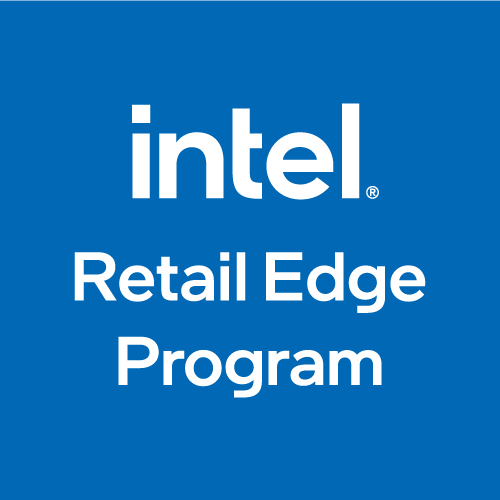 Creating an effective retail PC sales team requires more than just basic product knowledge; it involves a comprehensive understanding of customer needs, product specifications, and sales skills.
Creating an effective retail PC sales team requires more than just basic product knowledge; it involves a comprehensive understanding of customer needs, product specifications, and sales skills.
Just as computer technology evolves, so do the demands for sales associates to stay informed and persuasive. Here are a few key principles of retail PC sales training designed to equip your sales associates with the tools they need to succeed with customers.
1. Product Knowledge is the Foundation
The cornerstone of any sales training program is product knowledge. Associates should not only be familiar with the specifications, features, and benefits of the computers they are selling but also understand how these relate to the needs of various customer segments. Training should include:
- Technical Specifications: Understanding processor speeds, RAM, storage types, and graphics capabilities.
- Use Case Scenarios: Identifying which products are best for gaming, creating, professional work, and general use.
- Comparative Analysis: Being able to compare and contrast different models and brands on store shelves and in inventory.
2. Understanding the Customer
Associates need to be adept at quickly identifying a customer's needs, budget, and level of technical understanding. This involves:
- Active Listening: Encouraging associates to listen more than speak to understand the customer's needs fully.
- Questioning Techniques: Training staff on the right questions to ask to reveal what the customer truly needs from a computer.
- Empathy and Relatability: Teaching associates to relate to the customer's situation, making recommendations based on the customer's needs rather than their own preferences.
3. The Art of Demonstration
A live demonstration can be a powerful tool in PC sales. It allows customers to see the product in action and helps them envision how it fits into their lives. Effective demos involve:
- Preparation: Ensuring the computer is ready to show off its best features, with relevant software and files loaded.
- Engagement: Involving the customer in the demonstration, allowing them to use the keyboard, mouse, or touch screen.
- Highlighting Features: Focusing on features that meet the customer's identified needs, making the demonstration personalized and relevant.
4. Selling Solutions, Not Just Products
Customers often look for solutions to their problems rather than just a new laptop or desktop. Sales training should focus on:
- Solution-Based Selling: Training staff to think beyond the computer to accessories, software, and services that could enhance the customer's experience. Make it a complete sale.
- Bundling Products: Teaching how to create package deals that offer value to the customer and increase sales.
- After-Sales Support: Highlighting the importance of warranty, support, and return policies as part of the overall value proposition.
5. Overcoming Objections
Objection handling is a critical skill for any salesperson. Training should include:
- Anticipating Common Objections: Preparing associates with appropriate responses to common concerns such as price, compatibility, or the need for an upgrade.
- Positive Language: Encouraging the use of positive, confident language that reassures the customer and addresses their concerns.
- Problem-Solving Approach: Teaching staff to view objections as opportunities to understand further and solve the customer's problems.
6. Continuous Learning and Adaptation
The technology market is fast-moving, and what was a best-seller six months ago might not be today. Sales staff training should be an ongoing process, including:
- Regular Product Updates: Keeping sales teams informed about new releases, discontinued products, and emerging technology trends.
- Feedback Loops: Creating channels for associates to share their experiences and learn from each other.
- Adaptation to Change: Encouraging flexibility and adaptability in sales approaches as the retail PC market and customer preferences evolve.
7. Building Long-term Customer Relationships
The end goal of any sales interaction should be to create a satisfied customer who will return in the future. This involves:
- Honesty and Integrity: Ensuring associates understand the importance of honesty in building customer trust.
- Follow-up: Encouraging appropriate staff to follow up with customers after their purchase to ensure satisfaction and offer further assistance.
- Loyalty Programs: Utilizing loyalty programs to reward repeat customers and keep them engaged with your brand.
Deliver Immersive Customer PC Experiences with Well-Trained Associates
Training your retail staff in PC sales is not just about teaching them to push products; it's about equipping them with the skills to provide valuable, personalized service that meets the needs of each customer. By focusing on product knowledge, customer understanding, the art of demonstration, solution-based selling, objection handling, continuous learning, and building long-term relationships, you can create a retail sales team that not only meets but exceeds sales targets while fostering customer loyalty.
Remember, the most successful sales strategies are those that put the customer's needs at the center of every interaction.
Leveraging the Intel® Retail Edge Program for Enhanced Sales Training
The Intel® Retail Edge Program can be an invaluable resource for addressing the needs highlighted in this article. This comprehensive training and rewards program is designed to empower retail sales associates with the latest Intel® product knowledge, sales skills, and customer service strategies.
By integrating the Intel® Retail Edge Program into your training curriculum, your team can gain:
- Advanced insights into Intel® technology and products, ensuring your associates stay ahead in product knowledge.
- Access to engaging, interactive learning modules that cover everything from technical specifications to selling techniques.
- Opportunities for your sales associates to earn rewards and recognition, boosting motivation and engagement.
- Tools and resources to enhance customer interactions, ensuring your team can deliver personalized, solution-focused interactions.
By participating in the Intel® Retail Edge Program, your associates will be better equipped to meet and exceed customer expectations, driving sales and building lasting relationships.

Notices and Disclaimers
© Intel Corporation. Intel, the Intel logo, and other Intel marks are trademarks of Intel Corporation or its subsidiaries. Other names and brands may be claimed as the property of others.

